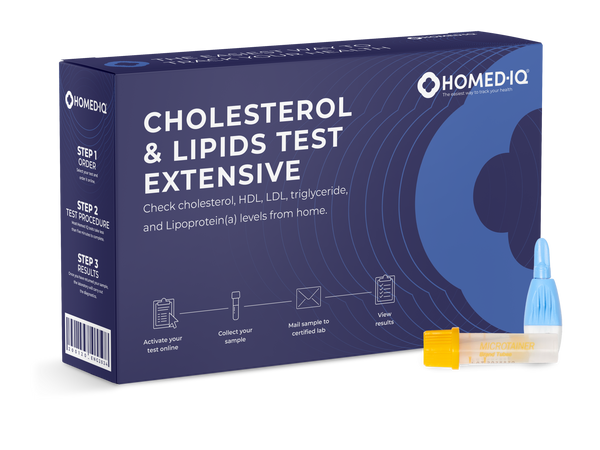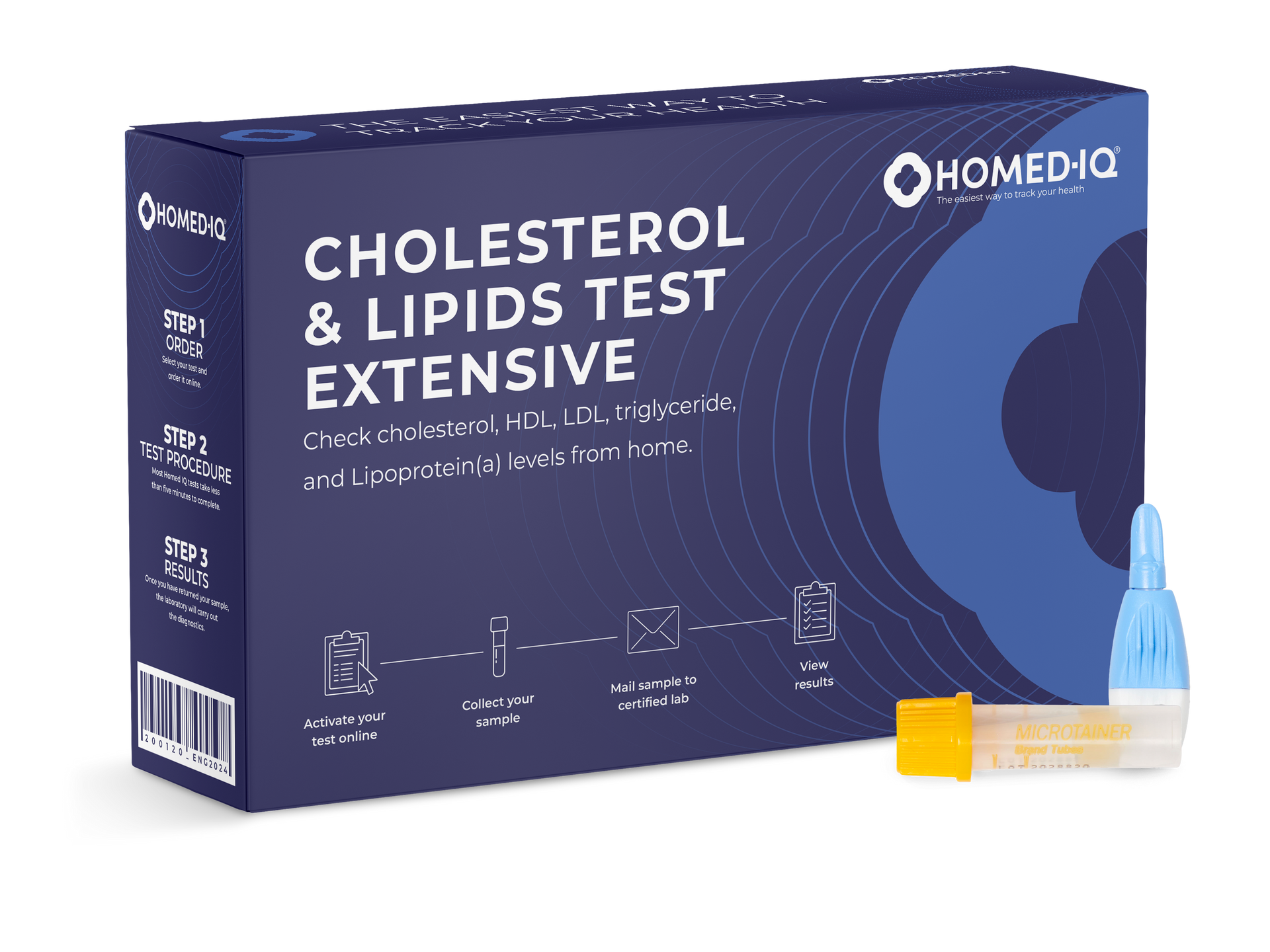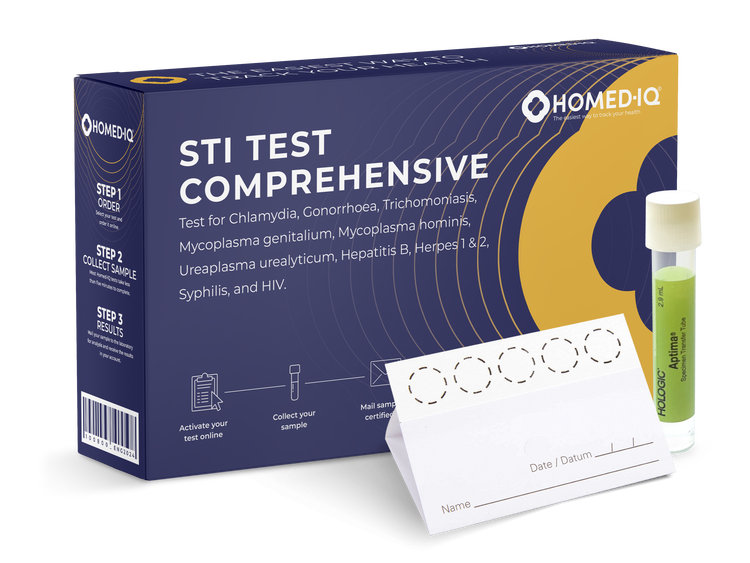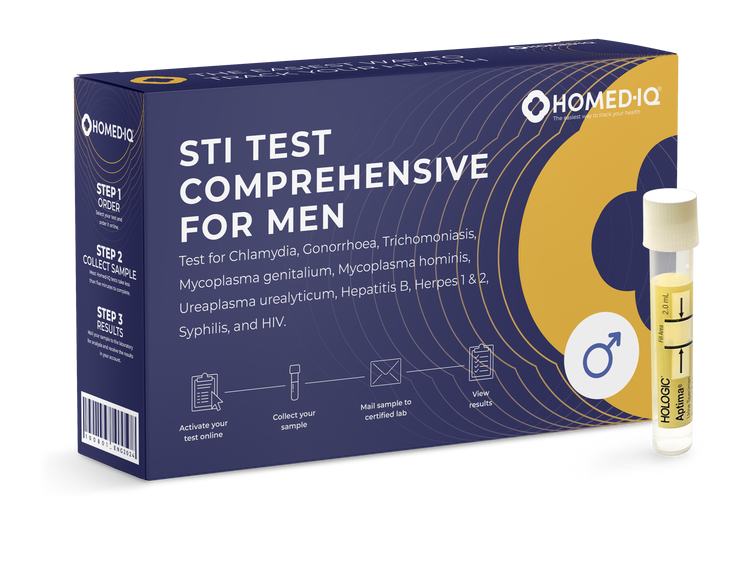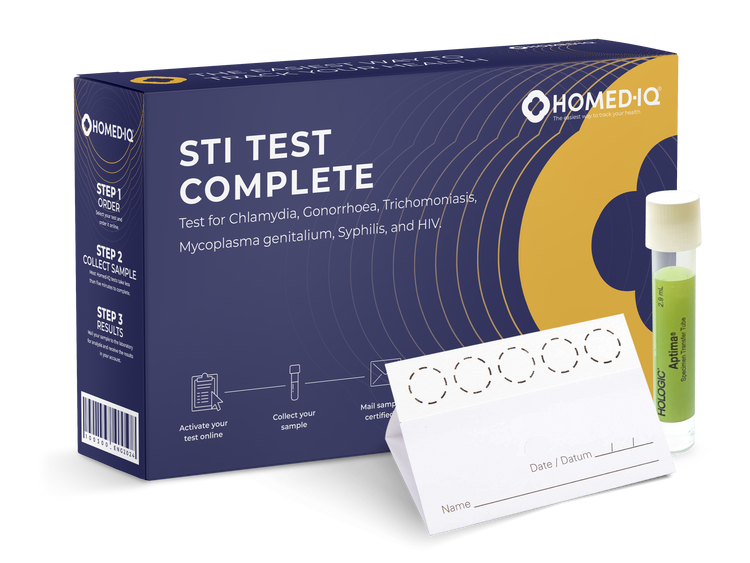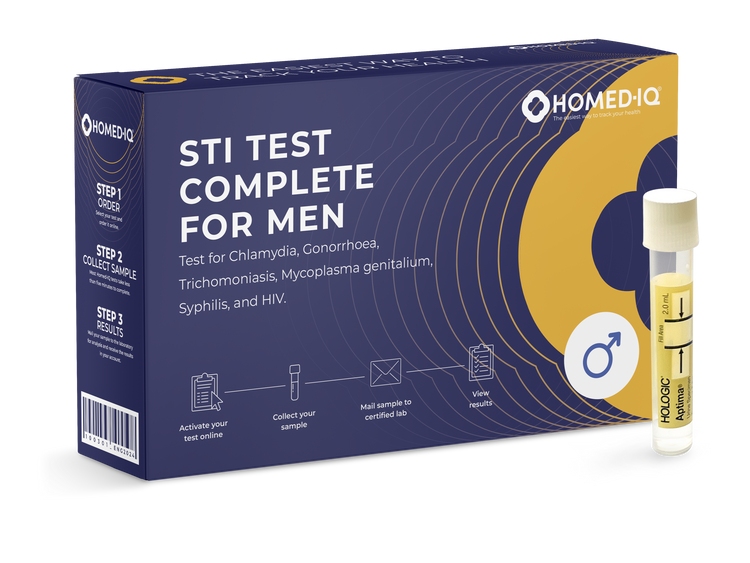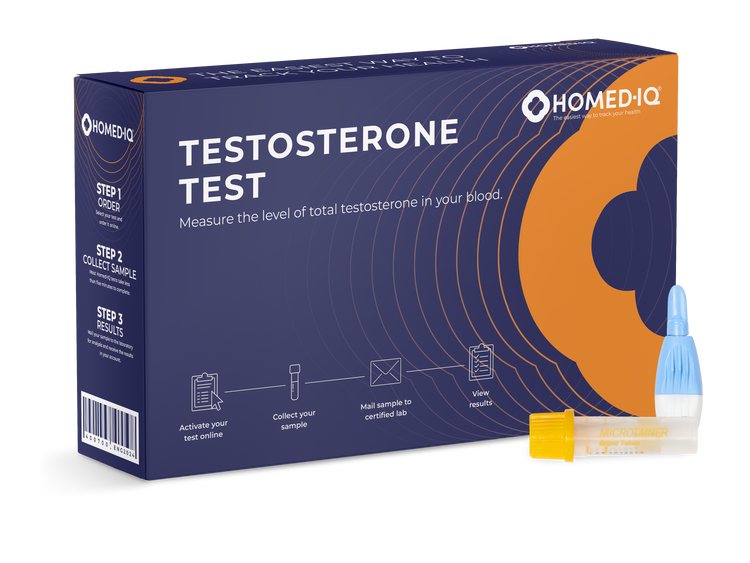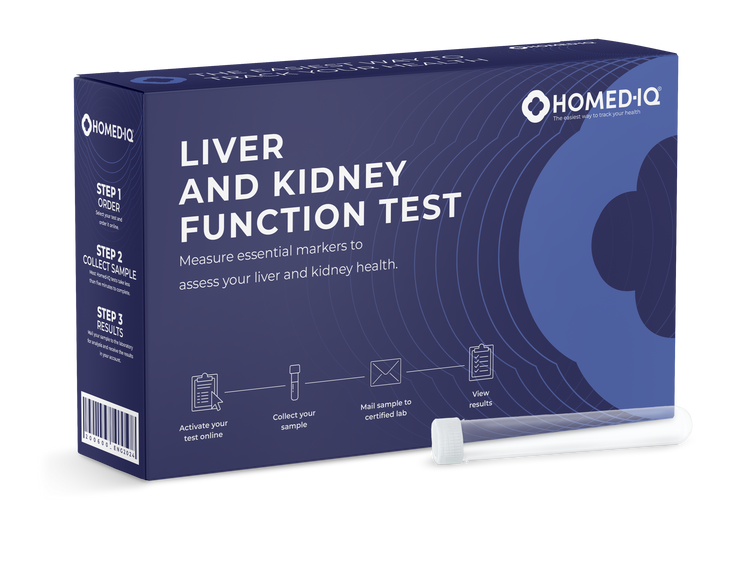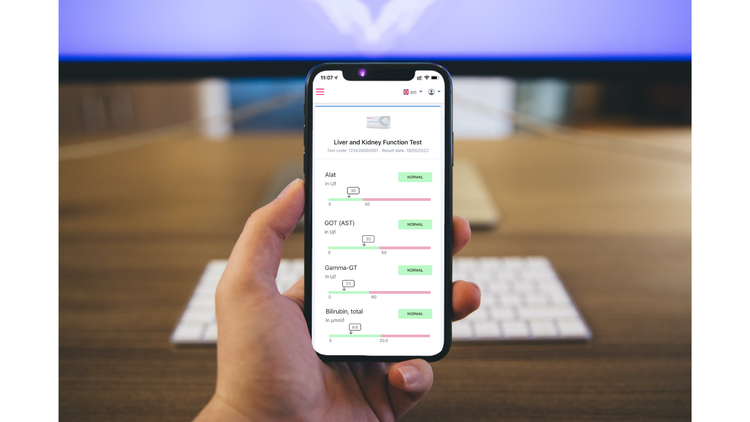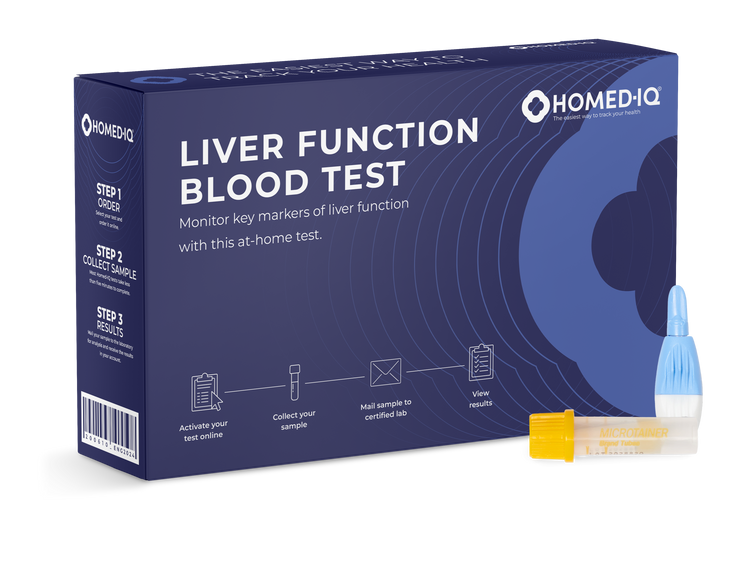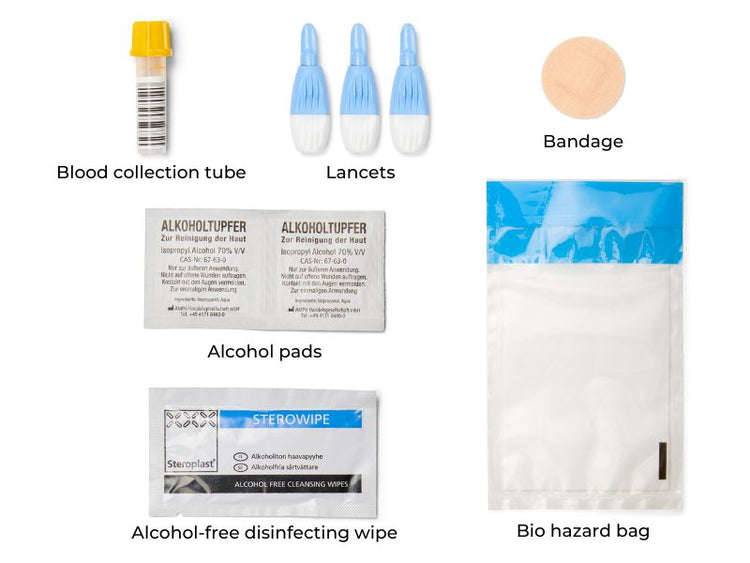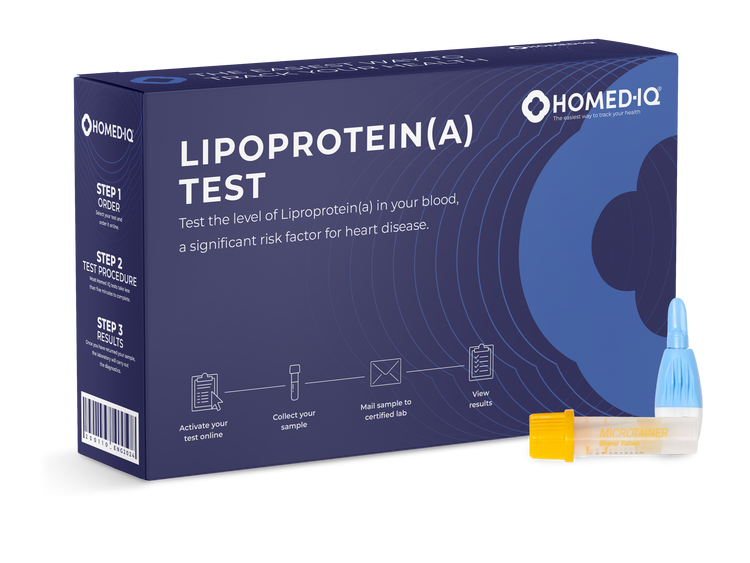Cholesterol & Lipids Test Extensive
FREE SHIPPING
Almost 1 in 4 people worldwide has high cholesterol, and a similar number has elevated levels of Lipoprotein(a)—a lesser-known but significant risk factor for heart disease. Without symptoms, high cholesterol and Lipoprotein(a) can silently increase your risk. Homed-IQ’s Cholesterol Test Extensive helps you take control of your heart health. This at-home test measures five key markers—total cholesterol, HDL, HDL% of total cholesterol, LDL, triglycerides, and Lipoprotein(a)—to give you a complete picture of your cardiovascular risk.
Test mode:
Finger prick test
FAQs
What causes high cholesterol?
What is cholesterol?
Why is it wise to test your cholesterol levels?
Who should use this cholesterol test?
What will the results of this cholesterol self-test tell me?
What are unhealthy cholesterol levels?
How do unhealthy cholesterol levels occur?
What is Lp(a)?
Can I lower my Lp(a) level?
What should I do if my Lp(a) value is high?
How does it work?
-
![Woman in professional cozy kitchen with Homed-IQ test kit]() 1
1Order your test
Fast and discrete letterbox delivery
-
![]() 2
2Activate & take your sample
Video instructions included
-
![]() 3
3Laboratory analysis
ISO - Certified lab network
-
![]() 4
4Receive your results
Easy access through mobile
